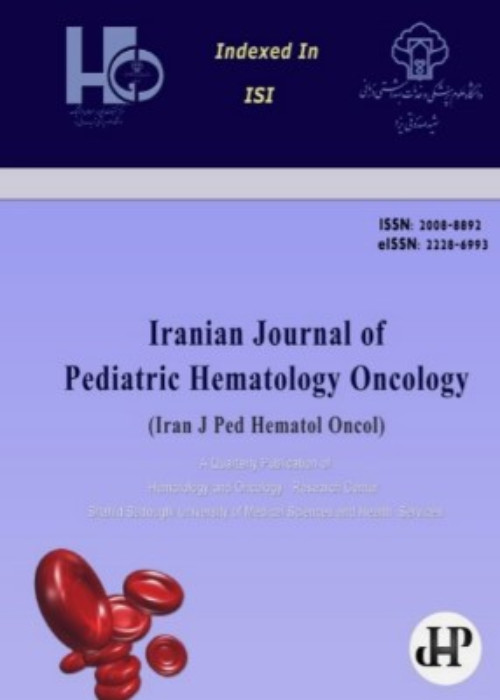The Prevalence of Hepatitis B, Hepatitis C, and Human Immunodeficiency Virus Infections among β-thalassemia Major: A Multicenter Survey in Lorestan, West of Iran
Author(s):
Article Type:
Research/Original Article (دارای رتبه معتبر)
Abstract:
Background
Although regular frequent blood transfusion improves overall survival of multi-transfused patients like β-thalassemic ones, it carries a definite risk of infection with blood-borne viruses such as viral hepatitis. This study was done to determine seropositivity of hepatitis B virus (HBV), hepatitis C virus (HCV), and Human Immunedeficiency Virus (HIV) infections among β-thalassemia major patients, and estimate the infection-associated risk factors among them.Materials And Methods
In this cross-sectional study, serums of 143 patients with β-thalassemia major were collected from 2015 to 2016. Enzyme-linked immunosorbent assay (ELISA) was performed for the detection of antibodies to hepatitis C virus anti-HCV, hepatitis B surface antigen HBs Ag, hepatitis B core antigen (anti-HBC), and human immunodeficiency virus (anti-HIV). The positive anti-HCV and anti-HIV results were confirmed by RIBA assay and Western blot. Demographic information and risk factors were collected and analyzed.Results
The findings showed that the prevalence rate of anti-HCV was 4.2%; while no patients were detected with HIV and HBV infections. Among the six anti-HCV positive patients, 5 (3.5%) were positive for anti-HCV using RIBA test. The prevalence of HCV seropositivity was higher in patients with sexual exposure risk (p= 0.04). There was no significant difference between sex and other risk factors such as history of splenectomy and different city with anti-HCV seropositivity (p=0.6 and 0.51, respectively). Moreover, the number of blood transfusions received by HCV positive thalassemia patients was significantly higher than that of negative anti-HCV thalassemia patients (p=0.001).Conclusion
The prevalence of HCV infection was much higher among β-thalassemic patients comparing with HBV and HIV infection patients. Older age, blood transfusion, and sexual risk were associated with HCV seropositivity. Routine screening of donated blood for HCV is highly recommended. More study is needed to assess continuous screening of blood products for patients with risks of exposure to HCV. Keywords:
Language:
English
Published:
Iranian Journal of Pediatric Hematology and Oncology, Volume:8 Issue: 2, Spring 2018
Pages:
111 to 117
magiran.com/p1811861
دانلود و مطالعه متن این مقاله با یکی از روشهای زیر امکان پذیر است:
اشتراک شخصی
با عضویت و پرداخت آنلاین حق اشتراک یکساله به مبلغ 1,390,000ريال میتوانید 70 عنوان مطلب دانلود کنید!
اشتراک سازمانی
به کتابخانه دانشگاه یا محل کار خود پیشنهاد کنید تا اشتراک سازمانی این پایگاه را برای دسترسی نامحدود همه کاربران به متن مطالب تهیه نمایند!
توجه!
- حق عضویت دریافتی صرف حمایت از نشریات عضو و نگهداری، تکمیل و توسعه مگیران میشود.
- پرداخت حق اشتراک و دانلود مقالات اجازه بازنشر آن در سایر رسانههای چاپی و دیجیتال را به کاربر نمیدهد.
دسترسی سراسری کاربران دانشگاه پیام نور!
اعضای هیئت علمی و دانشجویان دانشگاه پیام نور در سراسر کشور، در صورت ثبت نام با ایمیل دانشگاهی، تا پایان فروردین ماه 1403 به مقالات سایت دسترسی خواهند داشت!
In order to view content subscription is required
Personal subscription
Subscribe magiran.com for 70 € euros via PayPal and download 70 articles during a year.
Organization subscription
Please contact us to subscribe your university or library for unlimited access!


